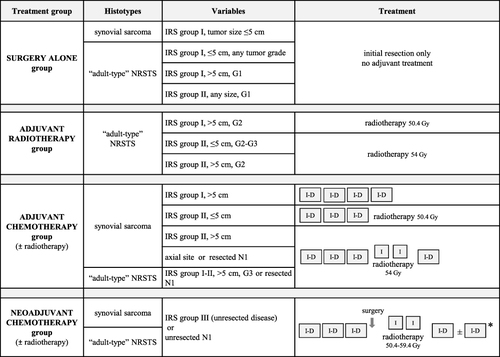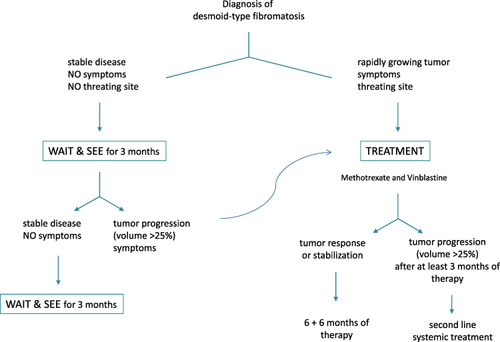Figures & data
Table 1 Different Published Series and Main Results from the EpSSG NRSTS 2005 Study
Table 2 A Practical Classification of the Main Pediatric NRSTS Histotypes
Figure 1 EpSSG standard-risk stratification and treatment recommendations for local/locoregional adult-type NRSTS (including synovial sarcoma).

Table 3 Summary of Treatment Recommendations for Specific Histotypes

